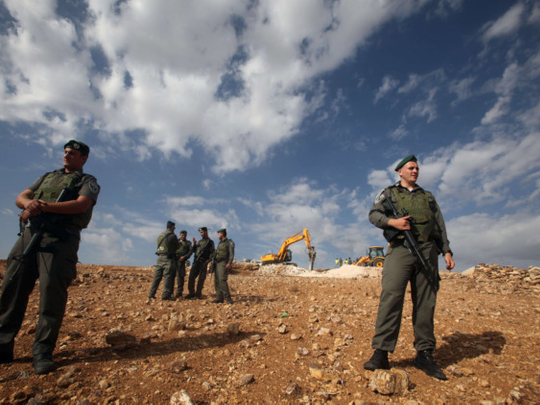
Doha: The Syrian opposition has scuppered a Western-backed initiative to relaunch the rebel movement with a focused leadership after the man lined up as its figurehead withdrew last night (Wednesday).
Key opposition factions with strong followings inside the country pulled out of the plan, which was due to be presented at a conference in Doha, Qatar, today.
Three of the dissident bodies seen as integral to the US-backed initiative said yesterday that they had refused to attend, diplomats and opposition figures told The Daily Telegraph. “There are too many people against this initiative for it to work now,” said a Western diplomatic source in Doha.
The setback came as Turkey said it was in talks to deploy Nato-controlled Patriot missiles on its border with Syria to ward off the regime’s cross-border threat. Ahmet Davutoglu, the Turkish foreign minister, said Nato had a responsibility to protect all member states from external attack, including Turkey.
Riad Seif, the Syria dissident who had championed the movement and was set to emerge as one of the new leaders, withdrew after he lost his seat in the executive council of the main opposition, the Syrian National Council (SNC). Furious at being publicly sidelined by the conference, the SNC voted against the proposal at its separate convention.
Representatives from the National Coordinating Committee, the Syrian democratic platform, and the Kurdish ethnic minority had rejected the plan. The failure is a blow to Hillary Clinton, the US secretary of state, who had announced it a week ago, and to Britain, which had strongly favoured it. “The components that were not in the SNC are not coming. The idea of a bigger coalition initiative has failed,” said Jamal Al Wa’ard, a military representative on the SNC. The proposal, which was widely known as the “Seif-Ford” initiative, after Robert Ford, the US special envoy to Syria and Mr Seif, has lost ground amid resentment at foreign efforts to impose a solution on Syrians.
“Everyone feels that this initiative is imposed. They’ve woven the cloth, but now there is no one to wear it,” said Ahmed Zaidan, the deputy head of the Revolutionary Council, a body that coordinates with armed groups inside Syria.
In a meeting held late last night, SNC members reportedly interrogated Mr Seif on the initiative, and the list of names proposed to lead it. “We asked him why some of the names were on the list and he said he didn’t know. The West pushed this on him. How can you endorse a plan when you can’t defend it?” said an SNC member who had been at the meetings.
The opposition meeting will go ahead, but any leadership body is likely to have a majority from the SNC, which has little influence on the ground. “It may secure more funding but [the conflict] is about winning the support of the street to regain control. And the street does not support them,” said a diplomatic source.












